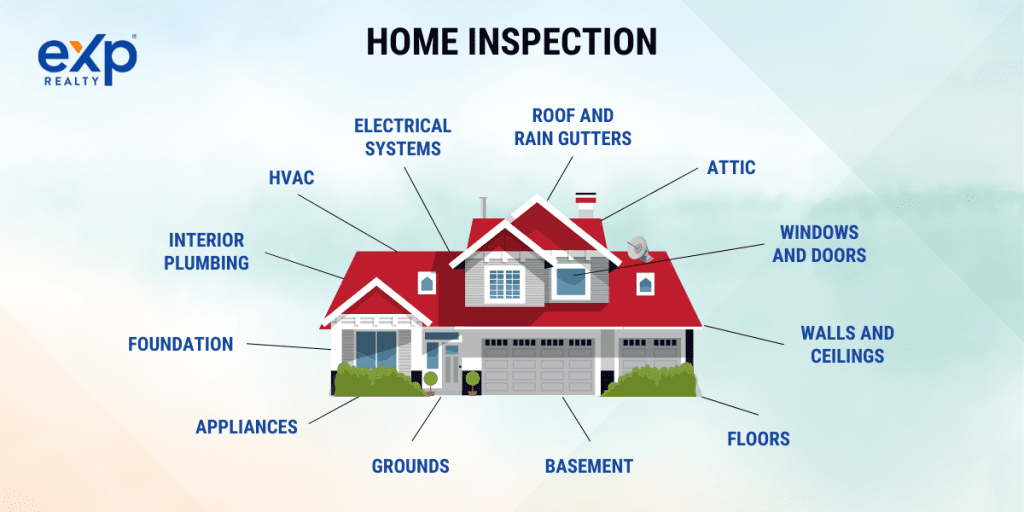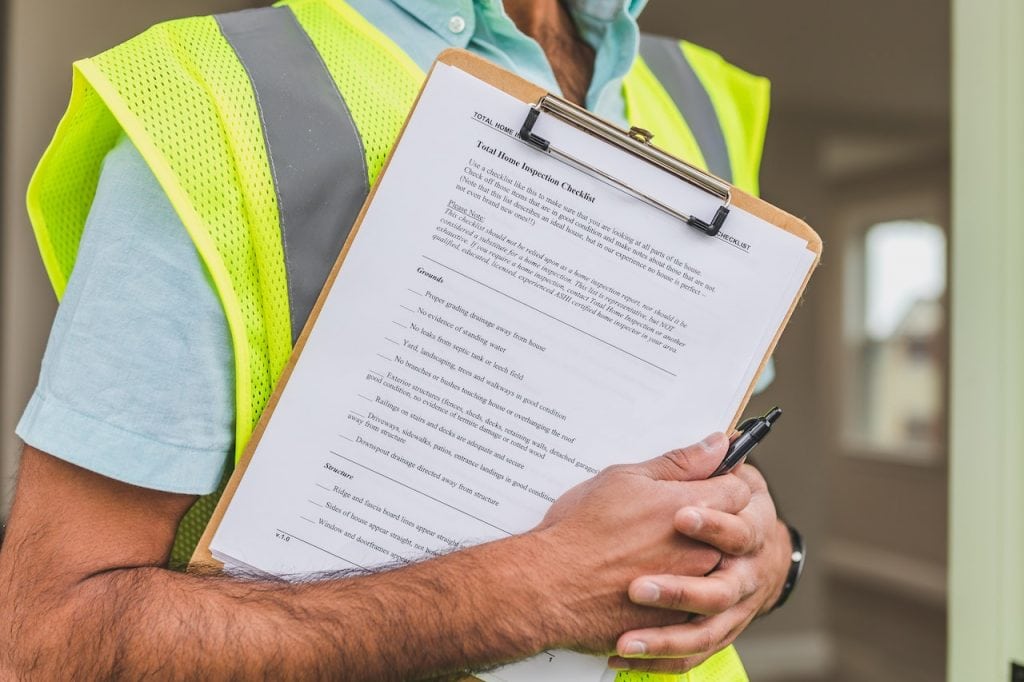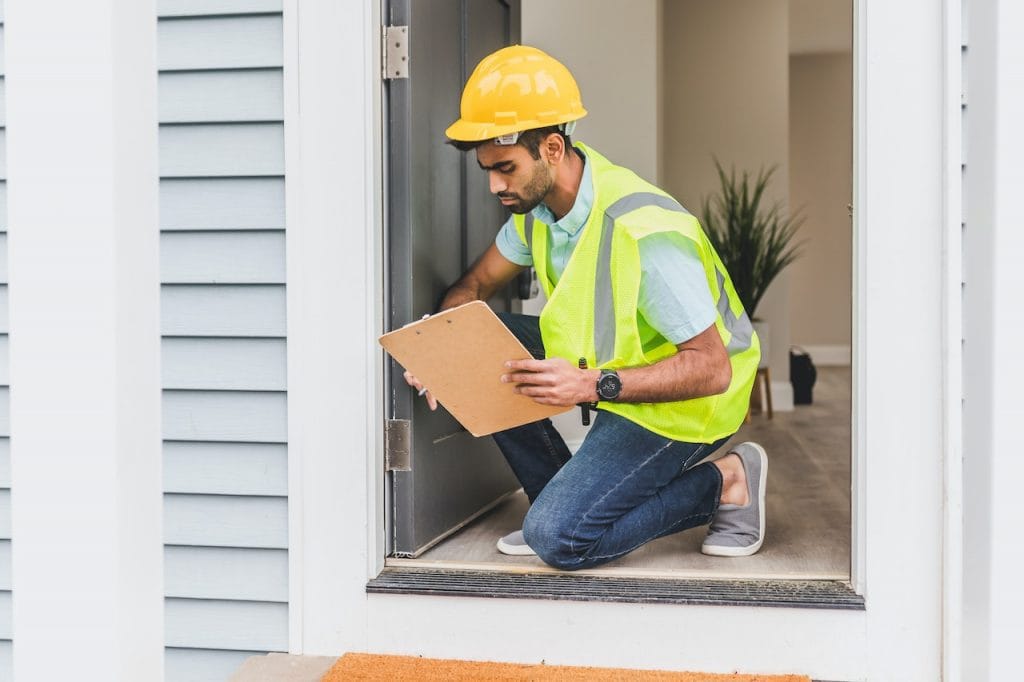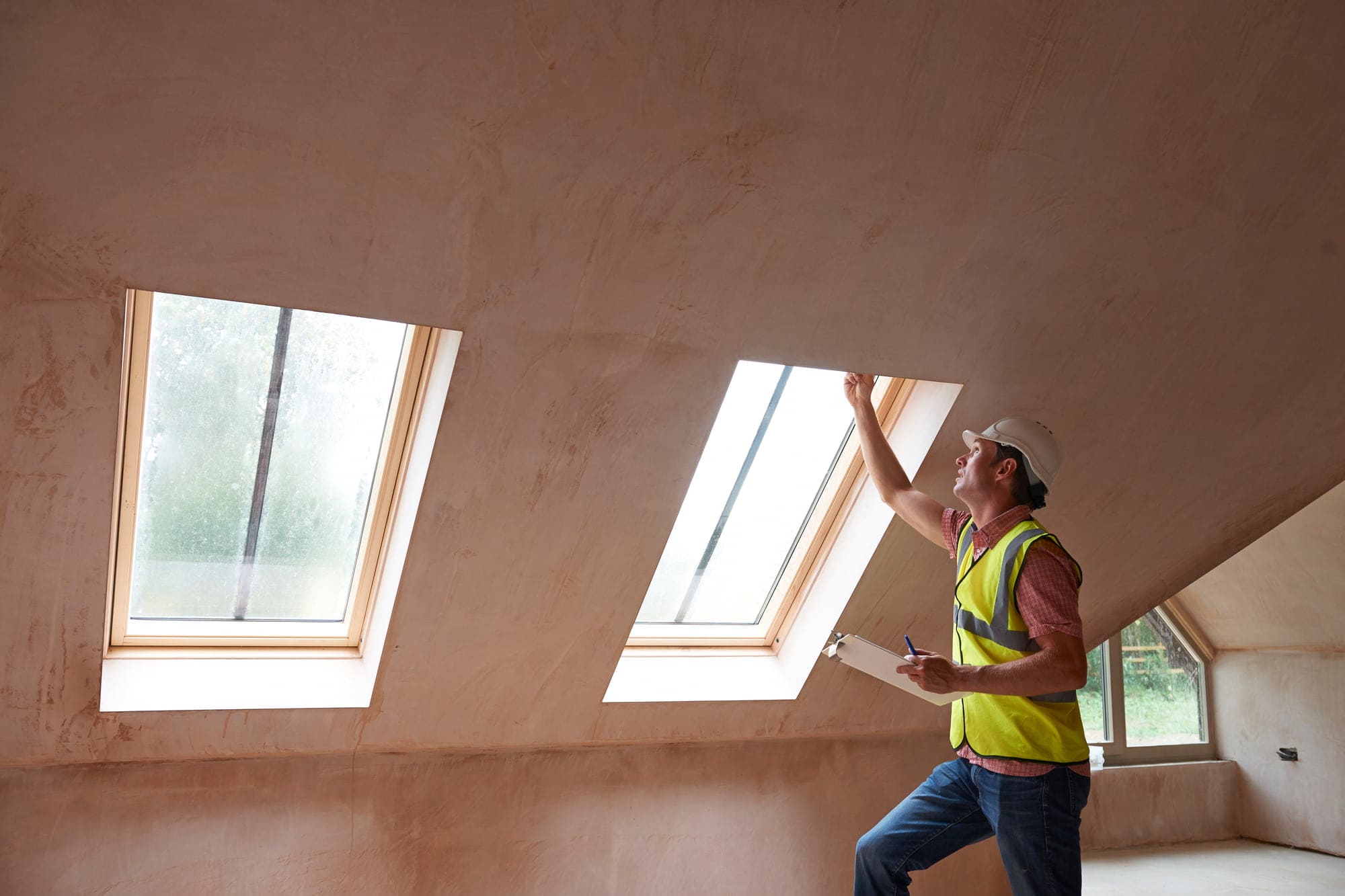Have you been debating on whether or not to get a home inspection? It is not always obvious you should get a home inspection before purchasing a home.
Many home inspections are also available, which can confuse the average home buyer. Many people overlook getting a home inspection before buying a house and hope for the best.
Keep reading to learn more about home inspection. We’ll go over the importance of a standard home inspection, the different types of home inspections you can do, and how to choose the right home inspector in this article.
What Is a Home Inspection and Why Do You Need One?

A home inspection is an examination of the safety and condition of a home. It is usually done in connection with the sale of the house, but you can do a home inspection for other reasons.
Home inspections can be limited and non-invasive, looking for general and obvious problems. They can also be detailed and specific to ensure areas are safe and the absence of specific problems.
Who Performs a Home Inspection?
Home inspections are done by a home inspector who is a trained professional, equipped and certified to conduct the inspection.
You can’t do a home inspection yourself as a buyer or seller of a home. Without training and certification, you wouldn’t know what to look for, even if you’ve lived in the house for years or have bought a hundred homes.
A home inspector is equipped to notice unsafe conditions and health hazards. They know the early signs of mold infestation, a collapsing roof, water damage, or dying HVAC systems. They can identify termite damage and note the steps you can take to resolve it.
Why are Home Inspections Important?
A home inspection is a crucial step in the home-buying process. It can help uncover potential issues with a property before closing, which means you can back out of a deal or get a better deal before closing after a home inspection.
You can also choose to purchase the house fully aware of the pitfalls and dangers and not get blindsided.
Home inspections allow you to make informed decisions regarding the purchase of a home. They ensure you avoid wasting your money and keep you from living in a hazardous home.
Types of Home Inspections
There are various home inspections you should consider when buying a house, including a visual inspection or a comprehensive inspection.

Different types of home inspections are done upon request to reveal specific information about a home. Let us look at the most common home inspection types and their importance.
General Home Inspection
A general home inspection is the primary complete inspection type you must have before you purchase a house.
A home inspector does the rounds and uses an inspection checklist to check major systems and components of a home for general signs of significant damage and hazards. It can be a visual inspection but is rarely a comprehensive inspection unless you specifically ask for one.
General home inspections are not very detailed. They look for major issues that affect broad areas of the house, and not problems in specific areas.
However, a home inspector will notice immediate threats to safety and things that lower the house value and mention them in their report. These include termite damage, mold, or uneven floors.
A general home inspection is crucial to your peace of mind as a buyer. It provides a comprehensive understanding of the overall condition of a property. After a general home inspection, you can make an informed decision on how much you want to pay for the property or whether to withdraw your offer.
Structural Inspection
Nobody wants to live in a building that could cave in at any minute. This is why a structural inspection is vital before you purchase a property.
While you can choose to buy a structurally unsound building or home for whatever reason, you legally must be aware of the structural issues.
The sellers may give you a heads-up, but sometimes they are not even aware there are structural issues. That’s where a structural building inspector comes in.
A structural inspection focuses on the primary components of a home, including the roof and foundation. The foundation inspector checks for signs of damage like cracks and water damage to determine if there are structural issues.
A roof inspector checks for minor or major problems on the roof or roofing structure, like breaks, or missing roofing pieces. They can also give recommendations for repairs.
Electrical Inspection
An electrical inspection evaluates the electrical systems of a home. It can uncover potential electrical safety issues, such as outdated wiring or wiring done improperly.
Without an electrical inspection, you could end up in a life-threatening situation after purchase. For example, outdated wiring can cause electrical fires, which are hard to put out and can burn down your house.
It is crucial to have an electrical inspection done to ensure you don’t waste money or put your family in danger unknowingly.
Plumbing Inspection
A plumbing inspection is an essential type of additional inspection as it assesses the house pipes, fixtures, water heater, water pressure, and water supply. It can uncover potential issues, like leaks, clogs, signs of water damage, and dilapidated plumbing systems.
You don’t want to try to take a shower on your first day in your new home and have no water coming out of the shower head to discover the pipes are clogged.
Also, imagine having leaky sewer drainage pipes or a backed-up septic tank. It is far from ideal and can cast a cloud over the excitement of moving into a new home.
That’s why it’s essential to get a plumbing inspection before you decide to purchase a home. It could save you from undertaking expensive plumbing issues soon after a costly home purchase contract.
HVAC Inspection
An HVAC inspection evaluates the house’s heating, ventilation, and air conditioning systems. It is vital for house buyers because it helps determine the condition and efficiency of these systems.
With an HVAC inspection, you will know whether there are extra costs you’ll need to undertake to update or fix the air conditioning, ventilation, or heating system before you buy. It can help you purchase the house for thousands of dollars less or know that you are paying the right amount.
How To Choose the Right Home Inspector

Now that you know the types of home inspections and their importance, you must understand how to choose the right home inspector. Have a clear outline of the qualifications you want an inspector to possess:
- Do you want a general home inspector?
- Are you specifically worried about the plumbing in the house you want to buy?
- Maybe you noticed a wire and want a professional to help put your mind at ease
Whatever the case, you should outline the qualifications you want clearly. It will help you narrow the search and find the right inspector. Here are some factors to consider when picking a home inspector:
1. They Should Have Proper Training and Experience
The home inspector you pick should have proper training and experience. While any person can tell you that the floor is warped, they won’t notice messed up plumbing or a roofing issue until it’s too late.
Training and experience allow home inspectors to know what to look for, what are major issues and which are not, and what solutions to recommend.
A well-trained roof inspector will let you know the age of the roof and any structural or material issues. A pest inspector with experience will know if your house has a possible termite infestation from observing specific damage.
Home inspectors with no proper training give poor recommendations. Those with no experience may overlook particular issues or not have the advice to fix problems. Both will cost you money in the short and long run. The inspector you pick must know what they’re doing to ensure you get a valid report.
2. They Should Be Licensed and Insured
A home inspector without a license is likely a con artist. It’s not always the case but assuming they are trying to con you is the best way to avoid getting a bogus home inspection report.
Always ensure you use a professional home inspector licensed in the state you are buying a house. State home safety regulations differ, meaning a home inspector from one state may be ignorant of the laws in another.
Getting a licensed home inspector will ensure you avoid con artists or miss out on possibly expensive or hazardous issues when purchasing a home.
You also need to ensure the home inspector you pick is insured. Professional liability insurance will protect the inspector from claims of errors and omissions. It also means they can pay if you or the person selling believe it’s beneficial to sue the home inspector.
3. Look for an Inspector with a Good Reputation in the Industry
The reviews given to home inspectors are a great indicator of the type of work they do. Don’t let yourself become a test drive, especially if you have no personal relationship with the home inspector.
Read their reviews and ask around town to get a good idea of who they are and what work they do. Trusted home inspectors are the way to go because people have tried and tested their work and been pleased with the results.
Use sites like Yelp, NextDoor, and Patch to find reviews for local home inspectors. Other sources for finding licensed and reputable home inspectors are:
- The American Society of Home Inspectors (ASHI)
- The National Academy of Building Inspection Engineers
- The International Association of Certified Home Inspectors (InterNACHI)
4. Compare Home Inspection Reports
Examining their previous home inspection reports is a great way to determine how thorough an inspector is. You want a home inspector that communicates the problems found in a house well and does not just deliver generic information.
You also want someone who can give good solution recommendations and not just leave you anxious with a list of problems.
Compare the home inspection reports from several inspectors. Check for someone with detailed observations and well-written information. The report should also include pictures, descriptions of the documented problems, and maintenance suggestions.
5. Ask About What Is Included in the Price
Another thing to consider is the services covered by the price you’re paying the inspector. Home inspectors typically charge $300 to $1,000 or more, depending on their experience, the scope of the inspection, and the home’s location and size.
Some inspectors have complimentary services tucked into their charges, such as measuring temperature differences or using a drone to view the roof.
Others will charge extra for these detailed services or refer you to another expert for additional inspections. Either way, you should remain aware that you may need to pay extra for a thorough home inspection report to ensure your safety.
6. Ask a Real Estate Agent
Real estate agents and Realtors have contact with numerous home inspectors in their dealings. They know who has experience, training, licenses, and a good reputation. Instead of scouring the internet or your neighborhood for a home inspector, ask a real estate agent to help you find the right home inspector.
Contact a local eXp agent who will provide you with a list of the best home inspectors in your area. They will also contact the home inspector to set up the home inspection and get the inspection report.
Afterward, the real estate agent will adjust your offer to match the home inspector’s findings or help you withdraw your offer without added stress.
Key Takeaways – How To Pick the Right Type of Home Inspector

Home inspections are critical to the home-buying process, and you should not skip them. Home inspections can provide valuable information about a property before closing.
This includes the state of the structure, whether or not the roof requires re-installation, the presence of water, any type of mold, or the need of a termite inspection, and other crucial information.
The information a home inspection provides can help you offer a purchase price that better reflects the state of the home. It can also save you from making a financially unwise and potentially hazardous decision when buying a house.
There are different types of home inspections you should pay for when buying a home. These include a general home inspection, HVAC inspection, plumbing inspection, electrical inspection, and structural inspection. There are many other types of specialized home inspections available, but these five are vital.
You must choose the right home inspector to conduct your home inspection. Choosing the right home inspector can make all the difference in the success of a home purchase.
The correct home inspector will provide you with a detailed report on the state of the house and help you make an informed decision.
Using a real estate agent during your home-buying process is vital and beneficial. Real estate agents can help you find the right property for your needs without stress and hustle.
Realtors also know the best home inspectors and understand the importance of having a qualified and reputable home inspector. They will facilitate the home inspection process before closing to ensure you get the safest and best deal for you and your family.
That’s why you should consider eXp realtors in your area. They are qualified and equipped to help you search for properties and will walk with you during the entire home inspection process when you choose a home.
FAQs: Types of Home Inspections
Related FAQs sourced from Google’s People Also Ask and forums:
What types of home inspections should you get done on a home before closing? How much did each cost?
There are several types of home inspections you should consider investing in before you decide to purchase a home for your safety and peace of mind.
- Roof Inspection (typically costs $75 to $200, depending on the roof size and house location)
- Electrical Inspection (costs between $125 and $200 on average)
- Septic System Inspection (will cost you an average of $50 for a general inspection.
- Pest Inspection costs anywhere from $75 up to a few hundred dollars. The price depends on the company that does the inspection and the size of the house.)
- Plumbing Inspection (costs $180 to $225)
- Foundation Inspection (has two fee structures. It costs $300 to $800 for a general foundation inspection and $1,000 to $3,000 for a more complex or bigger foundation inspection that can detect foundation issues.)
- HVAC Inspections (costs $200 to $500)
- Chimney Inspection (according to HomeAdvisor, costs anywhere from $100 to $5,000, with the average being $450)
- Asbestos Inspection (costs $600 to $1500, depending on the size of the house and the complexity of the inspection)
- Mold Inspection (costs $350 to $1,000, depending on the size of the house)
- Lead-Based Paint Inspection (especially critical for older homes and costs $250 to $700)
- Radon Inspection (with a DIY home test kit for $15 to $40. Alternatively, you can hire a professional for $100 to $200.)
- Crawl Space Inspection (often overlooked but is necessary and costs $100 to $300)
- Soil Inspection (costs $270 to $300 and ensures you can grow your vegetable garden once you close)
- Pool And Spa Inspection (costs $125 to $250, depending on the pool size and the house location)
What is the best type of home inspector to hire?
The best home inspector to hire is one who has a reputation for honesty and integrity. They are known to give detailed and well-structured home inspection reports and have proper training and experience. Ideally, the home inspector is a member of InterNACHI, NAHI, ASHI, or another professional body that indicates their level of training and professionalism. A home inspector with great reviews and many satisfied clients is always a good bet.
What are the benefits of home inspections?
Home inspections are vital and beneficial. Some of the benefits of getting a home inspection before purchase are below.
- You get a detailed report of the extent and nature of each defect.
- You can avoid concession requests from the seller.
- They prevent you from purchasing a home with fatal issues or significant damage if you’re not prepared to undertake substantial, costly repairs.
- They improve buyer confidence if no serious issues are found.
- They enhance home value for sellers.
- They allow for accurate pricing of a home.
- They ensure sufficient time to repair a home before the sale for anyone intending to sell their house.
What are the types of inspections?
There are two types of home inspections: general home inspections and specialized home inspections.
General home inspections are conducted by general home inspectors and are complete inspections of the home without a focus on any specific area. They cover the entire space and check for noticeable and unnoticeable signs of damage or safety hazards.
There are numerous types of specialized home inspections, such as roof inspection, pest inspection, radon testing, and mold inspection.
These are comprehensive inspections that give detailed reports regarding one area of the house, like the roof or foundation. They also look for one specific problem, such as termite damage, carpenter ants or mold infestation, or lead in the house paint.
What are the most common home inspections?
The most common home inspections, in order of popularity, are below.
- Roof inspections
- Foundation inspections
- Electrical inspections
- Window inspections
- Plumbing inspections
- Fencing inspections
- Chimney inspections
- Pest inspections
- Septic system inspections
How many types of inspection are there?
There are 14 types of home inspections to help protect you and your family from unsafe situations in the home. One is the general home inspection, and there are 13 specialized inspections.
What are the 5 very important things that are inspected in a home inspection?
The five noteworthy things that are inspected in a home inspection are the home structure, the roof and walls, the plumbing, the HVAC, and the electrical panels.
What are the red flags in a home inspection?
The red flags to look for in a home inspection are mold, termites and other pests, water damage, foundational issues, a sagging roof, cracks in the wall, a clogged drainage system, and significant electrical problems.
What’s an Inspection Contingency in Real Estate?
An inspection contingency is a smart clause to include in any home sales offer or purchase agreement. This contingency allows the buyer to back out of the deal if a major property defect is discovered during an inspection process.
It’s essentially a safeguard for potential homeowners and comes in handy if issues like asbestos, faulty wiring or other expensive repairs are uncovered. This can save you a lot of time and money further down the line, so make sure it’s included in any agreement before putting your trust in that dream home.





